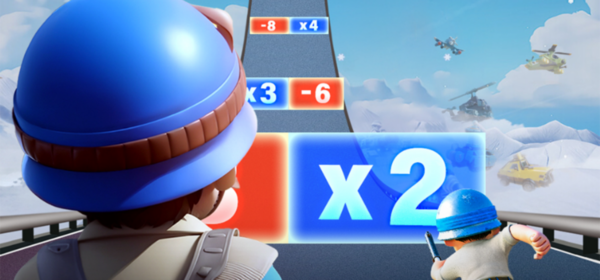"We don't assign IP rights": interview with Crytivo publisher
Crytivo is a young American indie publisher founded by a native of Turkmenistan. About the history of the company and what it is ready to offer developers today, we talked with its CEO Alexander Koshelkov.

History is cyclical. Against the background of the oversaturation of the market with gaming products, it is increasingly difficult to publish games independently. And there are more and more new publishers on the market who are ready to share their own expertise with newcomers. Crytivo is one of them.
Its founder and head is Alexander Koshelkov. He moved from Turkmenistan to the USA in the early tenth. I managed to work at Kodak and Citi. At one time I was actively engaged in digital finishing (matte painting), and six years ago I moved into games.
***
Alexander Semenov, Senior Editor App2Top.ru Questioner: You don’t have the most standard scenario of the way to the industry. What did you do at Kodak and Citi?
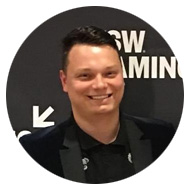
Alexander Koshelkov
Alexander Koshelkov, CEO of Crytivo: In Ashgabat, my career began at Kodak, where I was a sales manager and at the same time was the creative director of the local branch.
After moving to the States, he got a job at Citi, where he also worked in sales. After almost three years, he got a job as a designer at the creative agency Experiences For Mankind (EFM).
Working at a creative agency in San Diego sounds like a turning point in life.
Koshelkov: Partly it was. It was at EFM that I gained experience working with major advertising agencies, the opportunity to work on projects of companies such as Walt Disney, Universal Studios, Sony, Apple, Paramount and many others.
But you didn’t just change your activity at the click. You can’t do sales for six years and then suddenly become a designer.
Koshelkov: Sure.
I’ve been doing graphics for a long time, in 2010 I even started my own YouTube channel, where I posted some of my work. Several of my videos went viral and gained millions of views.
Both the channel and the work at EFM helped recruit a team of talented designers, marketers and programmers for the first game.
Why games, and not, for example, your own agency?
Koshelkov: I wanted to take up the creation of the game. Other niches were not so attractive.
That’s when you decided to stay in California. From the point of view of sales and business development, this is an ideal place. But development? It’s wildly expensive there. Was there any thought of changing the location?
Koshelkov: First. San Diego is a wonderful city that is two hours away from Los Angeles, the heart of digital entertainment, and a few hours flight from Silicon Valley to San Jose, the epicenter of all innovation and technology.
Second. It is believed that San Diego has the best weather in the USA.
The third. There are a lot of top gaming teams here. Here are Rockstar Games (Red Dead Redemption), Psyonix (Rocket League), Daybreak Game (H1Z1, Planetside 1-2), Kongregate and Sony gaming teams.
It’s true that California is an expensive state, but life in San Diego is not as expensive as in San Francisco or Los Angeles. So we feel quite comfortable here and are not thinking of moving yet.
So, six years ago you founded a studio. How quickly did things go?
Koshelkov: Yes, at the end of 2013, I started recruiting a team to create a Kickstarter pitch for The Universim (the easiest way to describe the game is as a simulator of God, where the player has to manage planets).
It took a couple of months to find the right people and prepare for the launch. On April 23, 2014, a fundraising campaign for the project was launched. The goal was to raise $320 thousand.
At that time, we only had a trailer (we put together a couple of scenes in Unity, and made a video out of them), as well as a bunch of ideas that we shared with the backers.
The campaign lasted 31 days. Upon completion, we managed to attract a little more than $400 thousand, including transactions via PayPal and other third-party payment methods.
After that, we started developing The Universim.
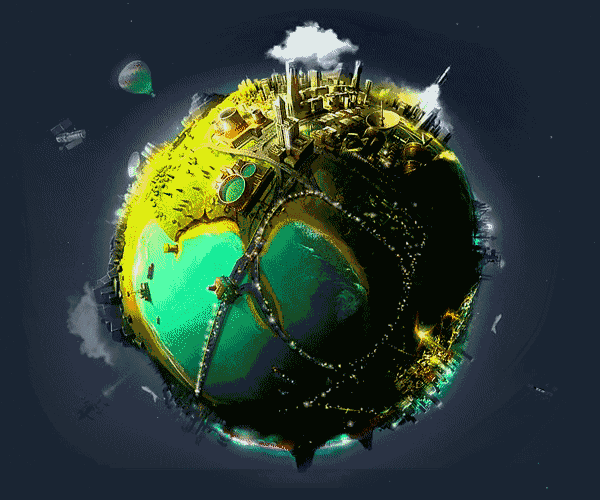
The Universim
God simulator The Universim — it even sounds complicated. Why did you decide to make a complex game right away, and not something simple for debugging processes?
Koshelkov: Look, we originally had two tasks:
- create something unique, new;
- at the same time, the game should not have been very difficult.
However, with the growth of the community, we realized that we wanted to make a more complex project. And the players themselves made it clear by throwing a very long wish list.
Just above, you mentioned Kickstarter. Why did you decide to turn to crowdfunding?
Koshelkov: I’ll say the obvious thing. Creating games is very expensive.
Considering that The Universim has been in development for six years, this, as I understand it, also applies to him. By the way, its official release has not yet taken place. What went wrong?
Koshelkov: The development of The Universim began in the summer of 2014, immediately after Kickstarter. Since 2015, as part of the sotflonch, the game has been available only on our website.
Since then, we have sold 50,000 copies of the game on it at a price of $29.99.
What about Steam?
Koshelkov: For a long time we did not go out on Steam intentionally, we realized that the game was not ready, we could get negative reviews. The problem is that many store users perceive early access as a complete exit of the game.
However, we went to early access and on Steam. It happened a year ago.
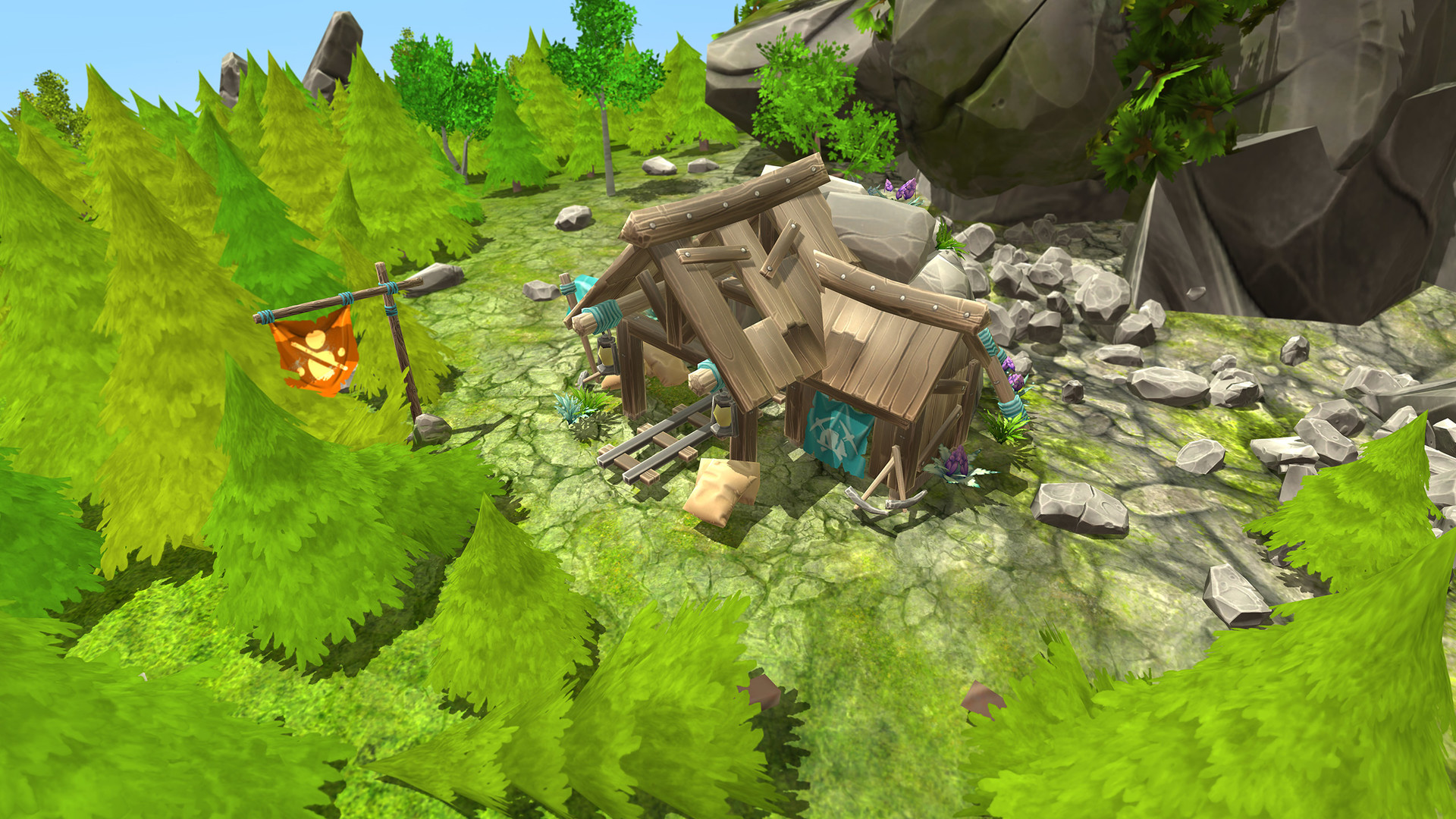
The Universim
And what about the indicators?
Koshelkov: Of course, we absolutely miscalculated our initial overoptimistic forecasts. But we believe that it is more important to delay the product than to release a broken absurdity. At the moment, the game has sold more than half a million copies in total from all sources.
Were there any third-party investments before or after the Kickstarter campaign?
Koshelkov: No, we try to do without investments. Especially now, when we position ourselves as a publisher. This allows us to be more flexible in working with game developers.
Your story is similar to the origin of the indie team, but not to the history of the publishing house. Why did you change the vector?
Koshelkov: After the success on Kickstarter, indie developers began to contact us with questions and requests to help with the promotion of their projects.
At a certain point, there was a situation when, on the one hand, we ourselves remained indica, and on the other, we informally actively helped to promote third—party projects.
There were more and more requests, and our team decided to engage in publishing officially. On February 1, 2018, we announced that we were starting to publish indie games, and in the summer of 2019 we began to look more actively at the Russian market.
There are a lot of publishers on the market now. Many have their own specialization. How do you position Crytivo as a publisher?
Koshelkov: First. We have our own digital store. That is, we will always help to provide the project with a certain level of sales.
Second. We are the most friendly and open publisher.
We communicate with developers at Discord and try to always be in touch. We practically do not conduct mail correspondence, we understand that it greatly slows down communication.
We also do not require strict compliance with deadlines and constantly discuss release dates with developers, despite the dates in the contract.
We are also not interested in assigning IP rights to ourselves — the game belongs to the developer 100% — and, of course, we provide financing and assistance in development.
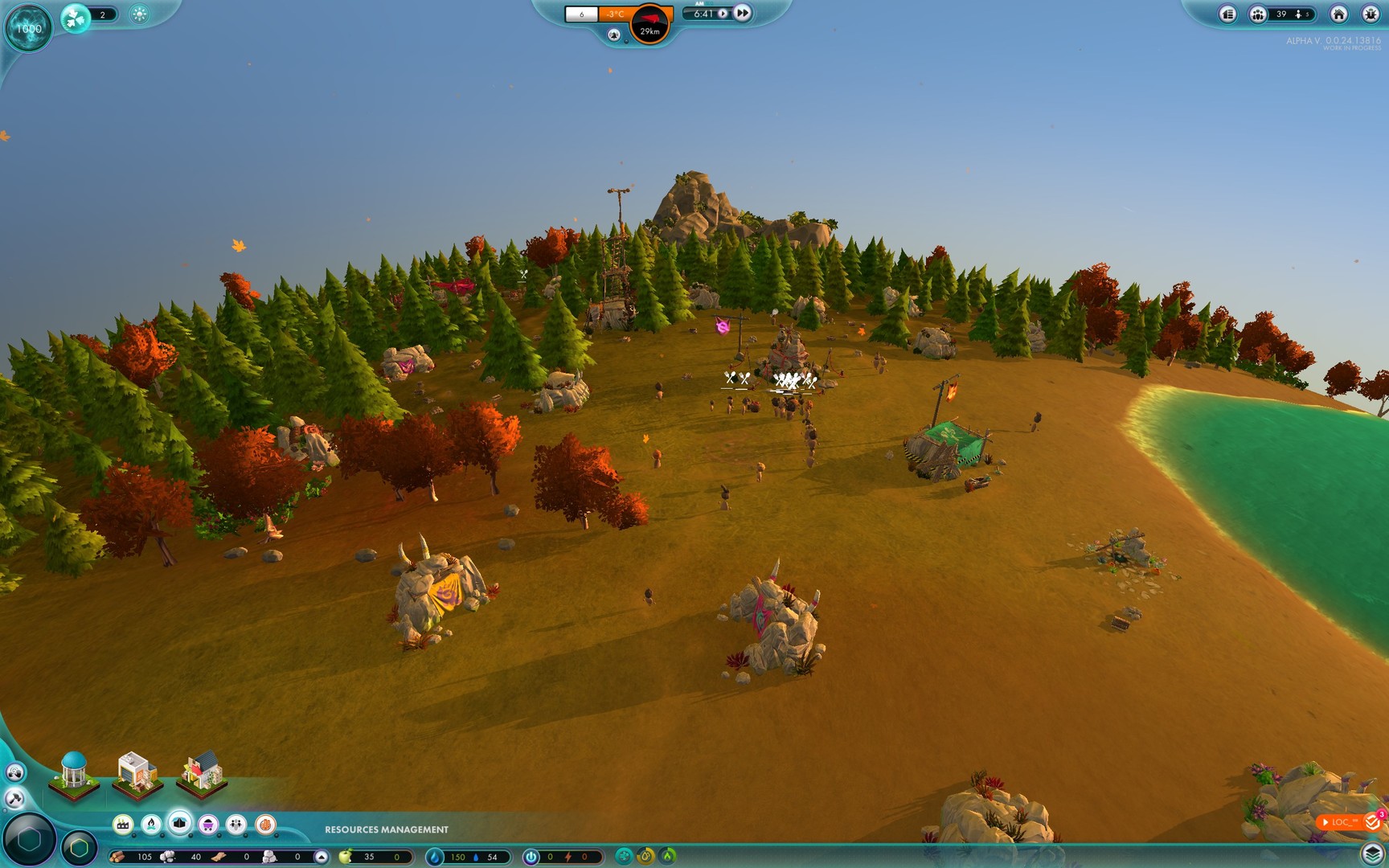
The Universim
What projects are you looking for (what genre, for what platforms, at what stage of readiness, with what monetization)?
Koshelkov: Our goal is satisfied players, and the only hard criterion is original, high—quality projects.
We prefer projects from Russian developers for PC and consoles, but we are ready to try to take on mobile games as well.
We are ready to start communicating with teams that have a playable build on their hands.
You said a little earlier that Crytivo is also engaged in financing development. Is the company ready to invest in development at the prototype or vertical slice level?
Koshelkov: Everything depends very much on the game. If the project is worthy, if acquaintance with the team makes it clear that it is able to pull the game, then why not.
How much exactly are you willing to invest?
Every year we allocate a budget for such expenses. The funds allocated depend heavily on the project and are considered separately.
On what terms do you conclude a contract (how do you divide the profit, for how long do you take the rights to the project)?
Koshelkov: All projects are different and require a special approach, so it is difficult to set any specific framework. A lot depends on the readiness of the project, on its size and on the team.
Every situation is considered very carefully: we draw up a marketing and financial plan for all projects. Our percentage for the publication can start from 15% and reach up to 50%, in some situations with terms from 2 to 5 years from the moment the game enters the market.
What are you ready, as a publisher, to offer from your side?
Koshelkov: In addition to funding, we provide assistance in creating assets, branding the developer, and quality control of the release candidate (the main thing is that it should be provided no later than a month before the planned release date of the game).
Of course, we provide marketing support for the project: work with influencers, publications in foreign media, features, devkits, localization, advertising campaigns, email marketing, etc.
We will also always help you find a specialist if, for example, the team needs a programmer or designer. We also help with the creation and support of a Kickstarter campaign and do not take a percentage of the proceeds.
For example, we recently launched a Kickstarter campaign for the Hotel Magnate project from Bastion Interactive. You can follow the progress of the campaign on our Twitter and on the project page.
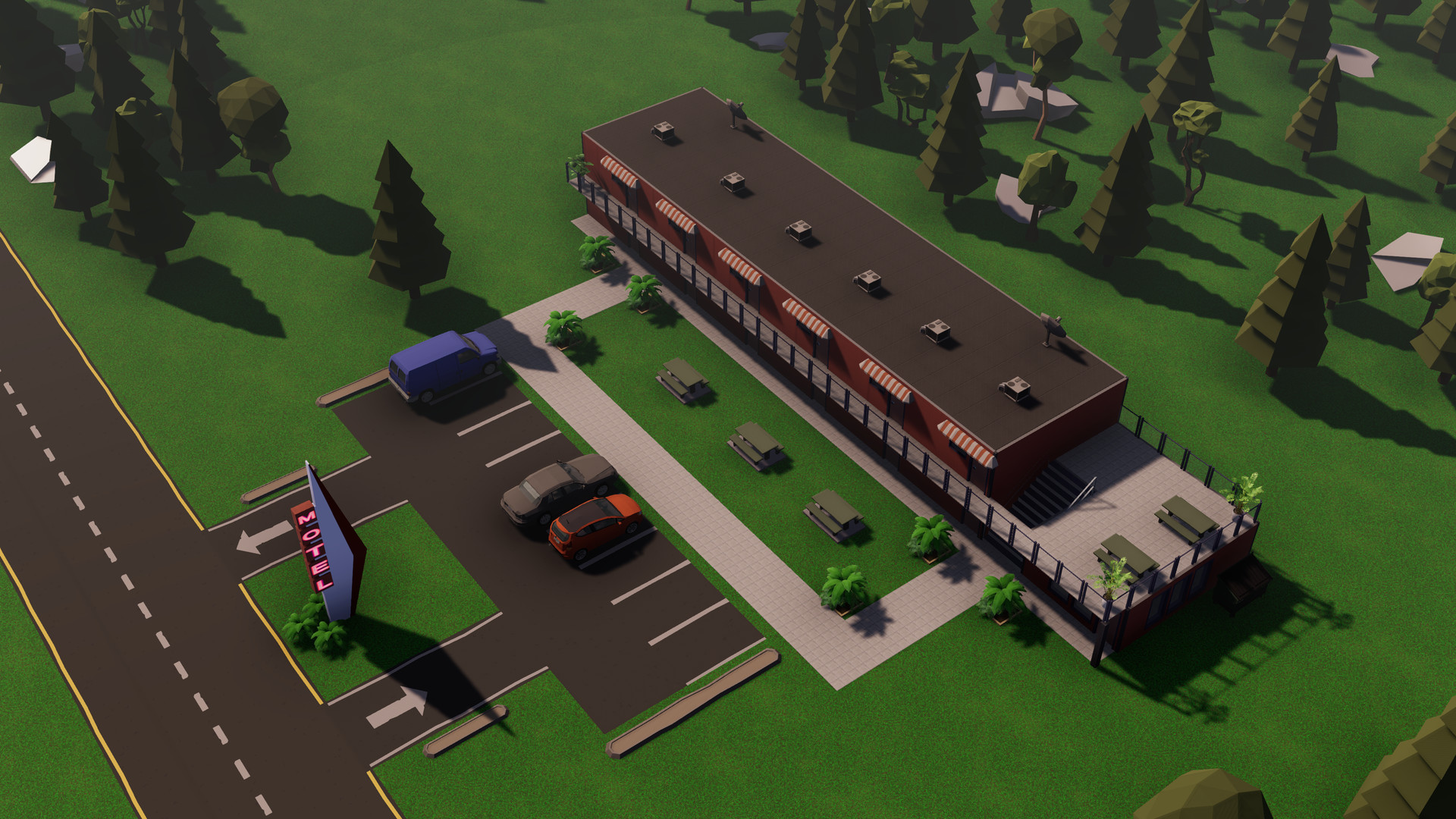
Hotel Magnate
You just said about marketing. What kind of promotion budget can you guarantee?
Koshelkov: As a rule, we put a certain percentage of the total investment in the game. Here again, everything depends on the project: if the developer has an AAA title and 400 thousand subscribers, then the marketing budget grows proportionally.
The monetization model will also affect the distribution of the budget: one amount will be allocated for a freeplay project and the other for a paid project. The amount can be adjusted during the preparation of the project for release.
Can you already boast of any publishing successes?
Koshelkov: At the moment we are working with six teams. The games are of different sizes, and many should be released within the next year or two.
I would like to note that we have helped to successfully complete crowdfunding for many projects. Prehistoric Kingdom collected $88 thousand, Farm Folks — $63 thousand, Goblins of Elderstone — $32 thousand and Serin Fate $9 thousand. By the way, in all cases the initial amounts were exceeded, i.e. they collected more than planned.
Now all these projects are being prepared for release.
Which of the upcoming projects do you have the highest hopes for?
Koshelkov: We pin our hopes on all projects, including three unannounced ones, and believe in their success.
Prehistoric Kingdom is the closest to release now. This is a game where the player builds and manages a prehistoric zoo. You can change the landscape, recruit staff and design attractions for visitors. On Steam, the game is now on the wish list of 70 thousand users.
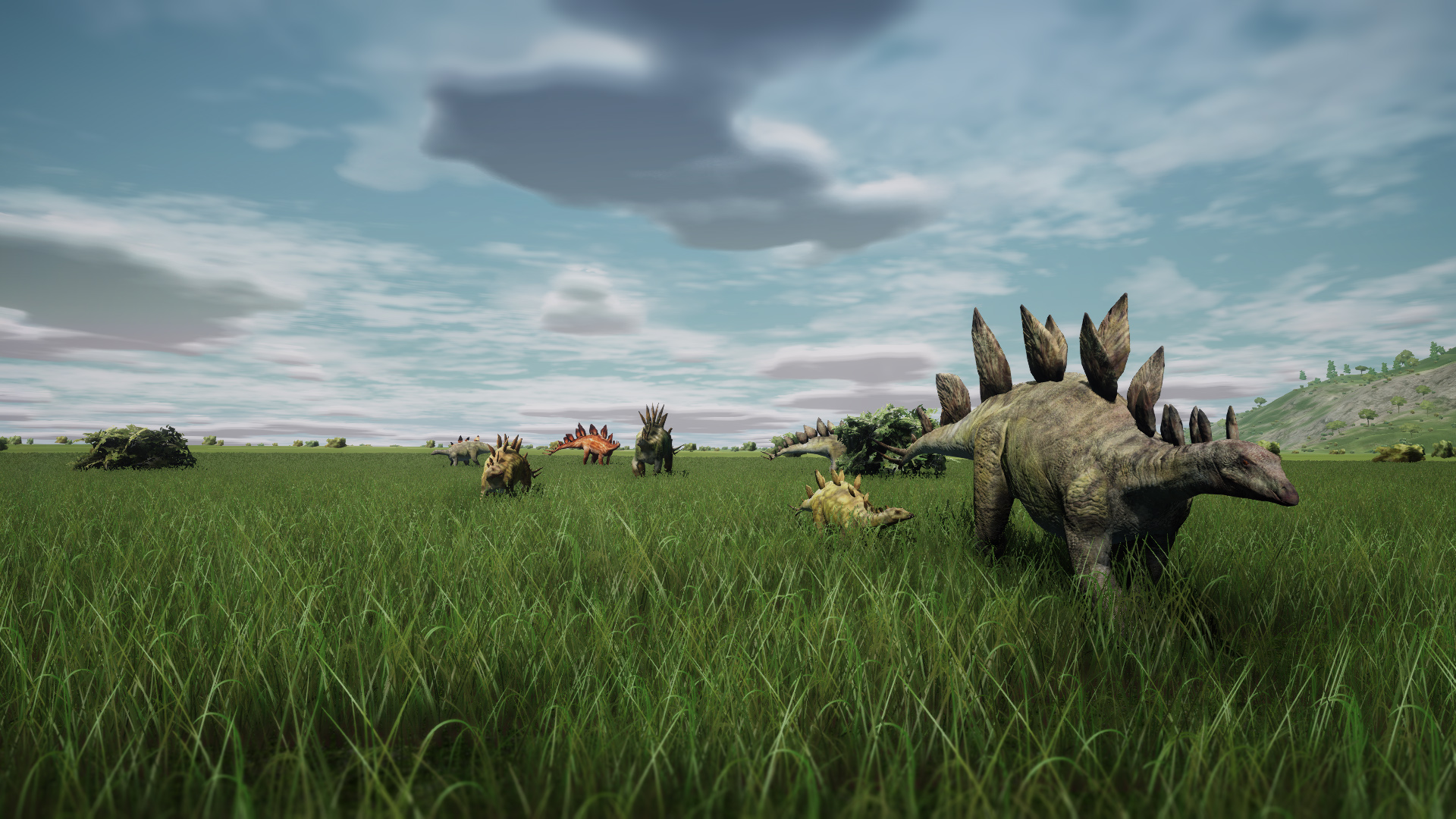
Prehistoric Kingdom
Prehistoric Kingdom will be shown at PAX West in late August in Seattle, where everyone will not only be able to build their own zoo of prehistoric animals, but also ride a 4-meter animatronic dinosaur.
Well, good luck. I can only add that developers can leave their questions under the publication.
